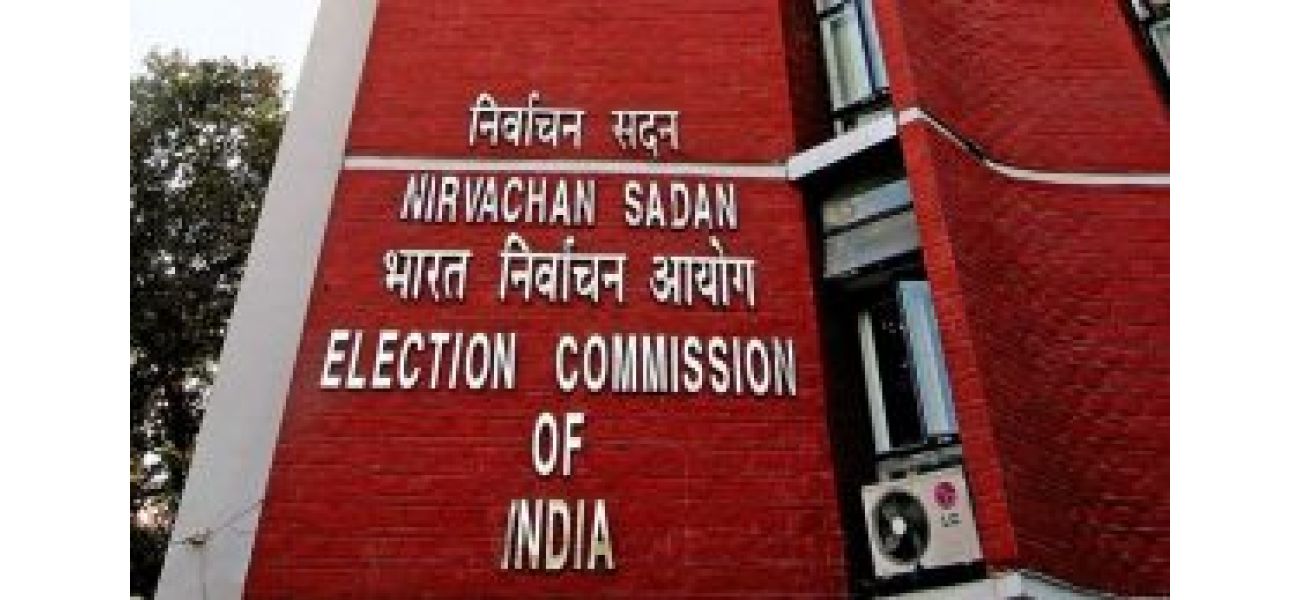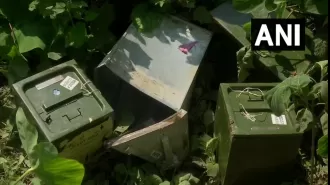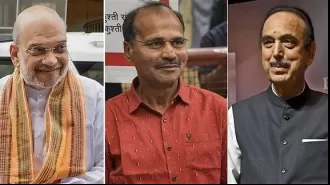Using SIR as a weapon.
The presence of fake voters in the electoral rolls is a grave concern as it undermines the democratic process. The issue is exacerbated by the presence of duplicate names in multiple constituencies.
October 29th 2025.

The problem of fake voters in the Election Commission of India's electoral rolls has always been a cause for concern, as it undermines the very essence of democracy. To make matters worse, there are instances of the same voter being listed in multiple constituencies with fake addresses.
Recently, the Congress party conducted a pilot project in a Karnataka Assembly constituency, which revealed the extent of corruption and manipulation within the Election Commission and the electoral system. The response from the ECI has been lacking in conviction, as they have denied any wrongdoing. However, they have taken the initiative to remove the names of deceased voters and those listed in multiple constituencies through a Special Intensive Revision (SIR) exercise. This is a step further from the regular revision of electoral rolls that has been carried out for decades. However, the first attempt at SIR in Bihar was met with a lot of skepticism, as many questions regarding the process and its motives were left unanswered. This is because the ECI, under the guise of SIR, has taken it upon themselves to determine the citizenship of the people, which is not their main responsibility. Their role is to include eligible citizens in the voter list, not exclude existing ones.
Over the years, the ECI has received praise for deploying large teams to physically visit homes across the country to enroll voters. After the Bihar experiment, the ECI announced that SIR will be conducted in 12 states and union territories starting from 27th October.
However, this fresh announcement has caused widespread fear and tension among the people instead of instilling confidence. This is because the experience in Bihar showed that the process could potentially lead to a significant number of people being disenfranchised. The timeline for SIR, which includes only a month for enumeration and another month for claims and objections, is also questionable. The provision of a "notice period" for hearing and verification, which lasts for 54 days, is a change from the Bihar model. The rush to complete the process is unwarranted, especially when the fate of a citizen's right to vote could be compromised due to a flawed and unreliable process. In fact, the approach followed in Bihar resulted in significant statistical discrepancies in the final voter list.
The intervention of the Supreme Court has led to some corrective measures, but the issue of using Aadhaar as a means to validate names in the voter list has not been addressed satisfactorily. The court has ruled that Aadhaar can only be used as an address proof, not as a proof of citizenship. This has given the ECI more power to demand additional documents from voters to prove their citizenship. This is a gray area that the ECI has entered into, making SIR a backdoor National Register of Citizens. If someone's name is excluded from the voter list, it could imply that they are not a bona fide citizen. However, determining citizenship is the responsibility of the Union Home Ministry, which had to backtrack from its attempt to enforce the NRC in Assam due to public backlash. It is possible that SIR is being used as a tool to achieve what the government couldn't do through the NRC.
The ECI, as an autonomous constitutional body, seems to be misusing its power to conduct SIR in states where non-BJP parties are in power, despite facing opposition from angry voters. West Bengal Chief Minister Mamata Banerjee has issued a warning about the social tension that SIR could cause in the state, and some ruling party leaders have even predicted a bloodbath. The Chief Election Commissioner has addressed these concerns by stating that one constitutional body must cooperate with another during the exercise. However, this response does not address the safety and security of the enumerators who will be visiting homes for SIR, nor does it address the potential backlash from the people. The ECI's focus should be on creating an error-free voter list, not deciding the legitimacy of a person's citizenship. Their approach should be persuasive, not coercive. While the rejection of Aadhaar in SIR is understandable, it is essential to remember that laws are made for the people, not the other way around.
Recently, the Congress party conducted a pilot project in a Karnataka Assembly constituency, which revealed the extent of corruption and manipulation within the Election Commission and the electoral system. The response from the ECI has been lacking in conviction, as they have denied any wrongdoing. However, they have taken the initiative to remove the names of deceased voters and those listed in multiple constituencies through a Special Intensive Revision (SIR) exercise. This is a step further from the regular revision of electoral rolls that has been carried out for decades. However, the first attempt at SIR in Bihar was met with a lot of skepticism, as many questions regarding the process and its motives were left unanswered. This is because the ECI, under the guise of SIR, has taken it upon themselves to determine the citizenship of the people, which is not their main responsibility. Their role is to include eligible citizens in the voter list, not exclude existing ones.
Over the years, the ECI has received praise for deploying large teams to physically visit homes across the country to enroll voters. After the Bihar experiment, the ECI announced that SIR will be conducted in 12 states and union territories starting from 27th October.
However, this fresh announcement has caused widespread fear and tension among the people instead of instilling confidence. This is because the experience in Bihar showed that the process could potentially lead to a significant number of people being disenfranchised. The timeline for SIR, which includes only a month for enumeration and another month for claims and objections, is also questionable. The provision of a "notice period" for hearing and verification, which lasts for 54 days, is a change from the Bihar model. The rush to complete the process is unwarranted, especially when the fate of a citizen's right to vote could be compromised due to a flawed and unreliable process. In fact, the approach followed in Bihar resulted in significant statistical discrepancies in the final voter list.
The intervention of the Supreme Court has led to some corrective measures, but the issue of using Aadhaar as a means to validate names in the voter list has not been addressed satisfactorily. The court has ruled that Aadhaar can only be used as an address proof, not as a proof of citizenship. This has given the ECI more power to demand additional documents from voters to prove their citizenship. This is a gray area that the ECI has entered into, making SIR a backdoor National Register of Citizens. If someone's name is excluded from the voter list, it could imply that they are not a bona fide citizen. However, determining citizenship is the responsibility of the Union Home Ministry, which had to backtrack from its attempt to enforce the NRC in Assam due to public backlash. It is possible that SIR is being used as a tool to achieve what the government couldn't do through the NRC.
The ECI, as an autonomous constitutional body, seems to be misusing its power to conduct SIR in states where non-BJP parties are in power, despite facing opposition from angry voters. West Bengal Chief Minister Mamata Banerjee has issued a warning about the social tension that SIR could cause in the state, and some ruling party leaders have even predicted a bloodbath. The Chief Election Commissioner has addressed these concerns by stating that one constitutional body must cooperate with another during the exercise. However, this response does not address the safety and security of the enumerators who will be visiting homes for SIR, nor does it address the potential backlash from the people. The ECI's focus should be on creating an error-free voter list, not deciding the legitimacy of a person's citizenship. Their approach should be persuasive, not coercive. While the rejection of Aadhaar in SIR is understandable, it is essential to remember that laws are made for the people, not the other way around.
[This article has been trending online recently and has been generated with AI. Your feed is customized.]
[Generative AI is experimental.]
0
0
Submit Comment





